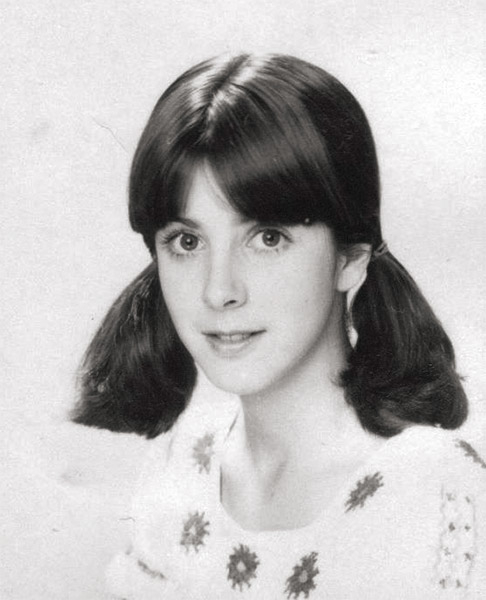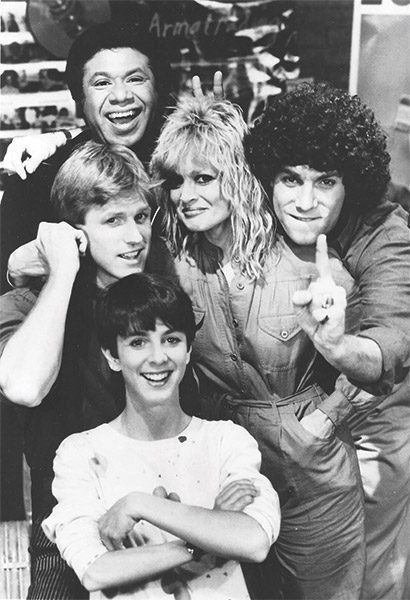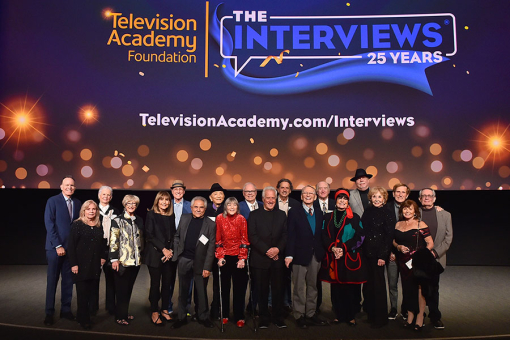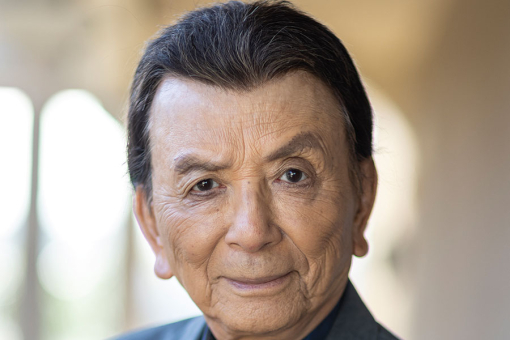Martha Quinn didn't know it, but in 1981, when she debuted as one of the original VJs on a new cable channel called MTV, she was also taking her place in popular culture.
When she'd auditioned only a month earlier, she didn't know what kind of job she was applying for. The network would not launch for another few weeks, and Quinn knew nothing about the operation.
A 22-year-old not long out of college, she was nonetheless hired on the spot, thanks to her music knowledge, engaging style and on-camera experience from appearing in commercials.
Quinn would spend the next 10 years bringing '80s music into homes and inspiring kids everywhere to tell their parents, "I want my MTV!"
The outlet would become the first profitable cable network, and the young woman who did not know what a VJ was would ultimately be voted "MTV's Best-Ever VJ" by the readers of Rolling Stone.
She still represents the decade that made her famous, hosting an '80s music program broadcast on iHeartRadio. She embraces her connection to the decade: "The music of the '80s is so ebullient and filled with optimism," she says. "It just makes you feel good."
Quinn was interviewed by Karen Herman in February 2018 for a coproduction between the Rock & Roll Hall of Fame (in conjunction with its Stay Tuned: Rock on TV exhibition) and The Interviews: An Oral History of Television, a program of the Television Academy Foundation. The following is an edited excerpt of their conversation. The entire interview can be seen at TelevisionAcademy.com/Interviews.
Q: Did you know what you wanted to be when you grew up?
A: In my first year of college, at Colgate University, I started working at the radio station and really, really liked it. I started to think I wanted to go into radio or journalism, and my stepmom [veteran financial journalist] Jane Bryant Quinn said, "You've got to go where the action is." So I moved to New York City, enrolled at NYU and started working on WNYU, the college radio station. It was pretty clear that radio was becoming my focus.
Q: Let's talk about MTV and how that came about for you.
A: I got an internship at WNBC [radio] in my senior year at NYU. I was working in the back closet, alphabetizing the singles. When I graduated, I kept my day job as a desk clerk at Weinstein dormitory, which is a legendary dorm at NYU.
I was going home one day and there was terrible traffic, so I hopped off the bus and called WNBC from a pay phone and said, "I'm going to come up and say hello."
As luck would have it, this guy was in from California, Burt Stein, and he said, "What's Bob Pittman doing?" Bob Pittman had been the program director for WNBC. He was one of the youngest programmers in the country, so he was kind of a wunderkind.
Buzz Brindle, my former boss, said, "He's doing this cable music channel." And Buzz turns to me and says, "Martha, that's what you should do. You should be a deejay on MTV." I asked, "What's MTV?" And he said, "It's just like being on the radio but on TV."
I was picturing [the CBS sitcom] WKRP in Cincinnati. So I asked, "Well, what do I do during the records?" He said, "No, it's videos, not records. I'm telling you, you should audition." He picks up the phone, calls Bob Pittman and says, "There's this girl here. I think she should audition." Pittman says: "It's our last day. Send her down."
I get in the cab. I'm wearing a T-shirt that says "Country Music Is in My Blood" and shorts and sneakers. And I walk in and say, "I'm here to audition for something." So I sit in the barber chair and they say, "What concerts have you seen recently?" I said, "Earth Wind & Fire." I'd seen them a bunch.
It was so good that I had no idea I was auditioning for the job of a lifetime, because I would have been way more nervous. But at that point I was used to auditioning for Campbell's soup commercials. I probably talked to them for five minutes. Two days later they called and offered me the job.
Q: So you'd been on commercials….
A: I had done a lot of commercials in college — I was the Chicken McNugget girl. I said, "You'll go nuggets for McNuggets." So I did have an ability to be on camera and I did have music knowledge. It is kind of crazy that I walked in with both on-camera experience and pretty extensive music experience. The freight trains of fate collided pretty perfectly.
Q: How did you ramp up for that first day on the air: August 1, 1981?
A: I didn't know that we were ramping up to a historic day. Now we have perspective of what MTV was, but I wasn't aware of it at that time. I probably worked there for two months before I quit my job at the dorm.
At first, MTV was carried only in random markets. We weren't in Manhattan; we were not in L.A. At that time, cable was promoted in areas of the country that couldn't get antenna reception.
The night MTV launched, we were all together in a little restaurant in New Jersey because it was the only place anywhere near us that was carrying it. Seeing that initial countdown and that first rocket blast go off was so exciting. Everybody was crying. It was an amazing night.
Q: How soon did you meet the other original VJs?
A: I don't remember specifically meeting them, but I do remember thinking that they were the coolest people I'd ever met. Alan Hunter was hired a couple of days after me. So the first people I would have met were Mark Goodman, J.J. Jackson and Nina Blackwood.
I was totally enamored with them. It's almost like a mom telling her older child, "I don't have a babysitter. You have to take your baby sister with you." They were forced to be with me all the time. And we're all still such a close family today. It's remarkable.
Q: What about Bob Pittman himself?
A: He is one of the people who created MTV and put it on the map. To shepherd an entirely new idea when everyone is saying nobody will watch videos, and to make it a whole cable channel that Warner Communications and American Express are backing… You have to have so much spunk and conviction, which Bob had. You cannot go wrong betting on Bob Pittman.
Q: Let's talk about the first video, for a song by The Buggles.
A: Russell Mulcahy directed that, and he went on to direct so many great '80s videos like "Bette Davis Eyes." When he made that for the Buggles, in 1979, there was no MTV. It was a really cool song and he made that now-iconic video. Eventually it came onto Bob Pittman's radar.
I've heard from Geoff Downes, who is one of the Buggles, that they got a call one day saying, "Hey, your video is going to be the first in this project over in New York City." They had no idea that their song was going to launch a generation.
Q: Early on there was an outcry over what some claimed was MTV's reluctance to feature black artists….
A: I don't subscribe to that theory. I'm not one of the programmers, but I came to MTV from my college radio station, where I did a show called "Getaway," which was all urban music. I also did a show called "Just Plain Folk," which was all folk music. I also did a show that was all '80s new wave. So the idea of formatting was very common.
I would no more play Shalamar in "Just Plain Folk" than I would have played Steve Goodman in my "Getaway" show because they were different formats.
When I saw Michael Jackson's "Billie Jean," I remember thinking, "This is so good — I wonder if we're going to be able to play this," because it wasn't our format. Everybody is going to say something different, but this is my take: Michael Jackson changed the trajectory of MTV because "Billie Jean" was an irresistible video. It was too good to pass up.
Plus, Michael had done the Motown Music Awards and anybody could see that his performance was breathtaking.
Q: In your interviews with artists, did you ever feel that you got to someone's core?
A: I got to the sticky, gooey core of Dave [David Lee Roth] at the first Video Music Awards at Radio City Music Hall. Everybody in the music business was there. I was told to go out and warm up the crowd, and that the proscenium was going to lower. I go do my thing, but nothing happens — the stage doesn't move. So I turn to walk off, and suddenly it starts lowering.
Now I'm teetering on the edge. I can either fall into the orchestra pit or take a little leap onto the main lip of the stage. I take my leap, but I was in heels and I fell. I was so mortified.
When they sent me out to interview David Lee Roth, the first words I say to him are, "Oh my God, did you see me fall?" And he goes, "Oh darlin', welcome to the Rock 'n' Roll Hall of Fame! You know how many times I've done that? Don't worry about it."
I was so grateful to him because he made me feel so much better. And in that moment, I did get a sense of his humanity. I'm always in camp Dave because I know that he's super kind at heart.
Q: You also interviewed Paul McCartney….
A: I did interview Paul McCartney and, gosh darn, do I wish that I had pictures or something! We were doing that interview and he was drinking tea. He gets up and leaves, and I looked in his teacup and there was still some tea in there with milk. I remember thinking, "I don't care if I get a bacterial infection if I get it from Paul McCartney." I picked up the cup and drank the tea.
I'm looking around Capitol Studios, the famous round building [in Hollywood], and nobody's particularly looking at me. So I open my bag and put the teacup right in. I thought, if you're going to do something sneaky, do it right out in the open. I pick up the spoon, put it right in. Pick up the saucer, put it right in.
I've got it all in my house now, and I haven't washed it. If there is an emergency and we need to clone Paul McCartney, let me know.
Q: Talk about the "I Want My MTV" campaign.
A: That was such a great idea. Bob Pittman's. MTV was having trouble getting into cable markets because they preferred services like HBO, which were subscription. But kids don't have money. We wanted to be on the free tier. Plus, we were 24/7 and a lot of cable systems were only on the air for 12 hours.
We decided we need to do this campaign, "I Want My MTV." [We told viewers] call your local cable company and demand MTV. And when it started to run, people were calling their cable company and demanding their MTV.
This was a really bold move, because we needed these cable companies to like us and want to carry us. Well, they called and said, "You've got to stop these ads. We can't handle these phone calls." Bob did the most genius thing. He said, "Increase the ads." That was a huge gamble — cable could have said, "We're never adding you." But it paid off in a really big way. Sometimes you just gotta look convention in the eye.
Q: It had so much impact.
A: It made us legitimate. Those ads put MTV on the map before it became available in a lot of areas. I could finally say, "That's where I work." And instead of saying, "She's working on this weird cable thing," my parents could say, "That thing where Mick Jagger is saying, 'I want my MTV' — that's where my daughter works."
Q: How did you handle the fame when MTV took off?
A: I never had the problem of people mobbing me like I was Elvis Presley. But I do think that as time went on, I took my Martha Quinn-ness for granted.
Q: What do you mean?
A: I thought that MTV and I were one and the same, that I would always be with MTV. But when Bob Pittman left and the new regime came in, they decided to let go of the old regime. I got let go.
I was shocked to the core. I thought that would never happen to me. But if I watch some of the footage from, say, 1985, I can see that I was taking MTV for granted. I was resting on my laurels. I was off the air for maybe a year and then they brought me back — and, oh boy, I did not take it for granted then. Life has a good way of teaching you.
Q: When you returned, did you start to see a lot of changes?
A: Yeah, I was there for the first era and I was there for the transition to the second. I used to joke with [Remote Control host] Ken Ober — may he rest in peace, I'm so sad that he passed away — that he was personally responsible for ruining MTV because Remote Control was the first non-music programming.
I read somewhere somebody saying MTV created the video star and then MTV killed the radio star. MTV in fact killed their own format that they made so successful. But they were always about staying on the cutting edge, changing and evolving. That's the direction that they went.
Q: Why did you finally leave?
A: In 1992, they just didn't pick up my contract and that was the end of that. I enjoyed every single moment that the sun shone on me that second time, because I knew it wasn't going to last.
Q: What are your favorite moments from MTV?
A: Definitely the times I got to meet the legendary music stars I'd grown up admiring, like David Lee Roth, Bob Dylan…. I watched some footage of me with Prince — I've been a Prince fan since before MTV, since the "Controversy" days — and I asked him, "How do you feel?" And he goes, "I feel with my hands, Martha." He was a pretty funny guy.
And I said, "Would you like to give me a demonstration?" In hindsight, that was pretty quick thinking on my part!
Meeting those people — that was amazing. And the family that has been created with the VJs and the people who were there on the ground floor of MTV — I'm so grateful for that.
There are always people who are going to think outside the box, and when they're not [emotionally] supported, that's a sad and lonely and disenfranchising experience. But when they tune into MTV and see other people who are thinking outside the box, like Boy George, all of a sudden it's like, "I'm not alone." That was a tremendous gift MTV gave to an entire generation of independent thinkers, and I'm very grateful for that.
Q: After you left MTV, you did some acting….
A: It's pretty amazing that I was both on MTV and I'm a member of the Brady family. I played Tracy on The Bradys, their comeback series, and married Bobby Brady [Mike Lookinland].
Being on that set and seeing Alice [Ann B. Davis], those stairs… I kept calling Chris Knight "Peter" because I can't help it. You see him and you go, "Oh, there's Peter Brady."
Q: Did you watch the show when you were growing up?
A: Of course. The other sort of iconic TV show I did was Star Search — I cohosted with Ed McMahon [in 1994, during season 12]. It was the same kind of thing, it was like, "That's Ed McMahon!"
Q: By 1999, you were contributing to CBS's Early Show ….
A: I was at CBS when I had my [first] daughter, and it was like a 24/7 thing. It just wasn't working for my family. I called J.J. Jackson, who loved the fact that I was doing CBS News — he was super proud of me. I said, "J.J., I had to quit. I couldn't do it anymore because my baby's little and she was missing me."
And he said, "M.C.Q., you did the right thing. You put your family first, and that's what you're supposed to do." I miss J.J. every single day [he died in 2004].
Then I didn't [accept other work] for quite a few years, until Sirius XM called me and said, "All the other VJs are doing this show — do you want to do it?" And Bob Pittman called me and said, "Do you want to be on this cool iHeartRadio '80s radio station?" Once again, Bob plunked me down in the world of Duran Duran and A-Ha. Bob brought me into this new world of terrestrial radio. It's funny how that came back.
Q: You are so associated with the '80s now. You're like a spokesperson.
A: I love the 80s! The '80s has transcended a decade and has become a genre. It's like rockabilly or new wave or hip hop. The '80s make people feel good.
I don't recall that we used the word awesome all that much in the '80s, but it's a perfect word. The music of the '80s is so ebullient and filled with optimism. Also, a lot of music was still being made on tape, so it has a very real feel to it. I'm all about the awesome. Anything that's about making people feel good about life as they go about their day, I'm all about.
This article originally appeared in emmy magazine, Issue No. 6, 2019














